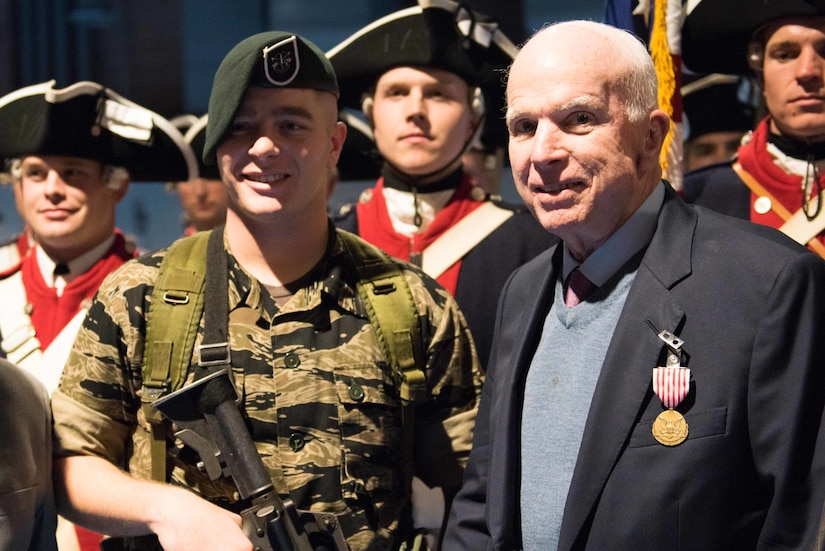By Jim Garamone, DoD News, Defense Media Activity
WASHINGTON -- Enhancing lethality and restoring readiness is
at the heart of the National Security Strategy and the National Guard is an
integral part of that strategy, Defense Secretary James N. Mattis told the
National Guard Association of the United States, yesterday.
The secretary spoke in New Orleans to the 140th General
Conference of the group.
The secretary used his speech to describe how the National
Guard fits into the strategy. Great power competition with China and Russia has
replaced terrorism as the primary focus, he said, adding that the U.S. military
continues the fight against terrorists.
‘We’re Going to Restore Readiness’
Moving to this priority means restoring military readiness
across the board, the secretary said.
“We’re going to restore readiness … and we’re going to build
a more lethal force in the process,” Mattis said. “Second, we are going to
strengthen alliances with partners and allies and we’re going to create new
partners and allies.”
He noted the American Revolution would have failed without
help from allies like France.
The third line of effort is to reform and modernize DoD for
greater performance, accountability and affordability, Mattis said. This
strategy is key to gaining bipartisan support for the military on Capitol Hill,
he said. He noted that 87 percent of Congress approved the recently passed
National Defense Authorization Act.
But, he said, the key to the strategy is a lethal military
force. “We Americans have no God-given right to victory on the battlefield. So
we need you, my fine young National Guardsmen, at the top of your game,” Mattis
said. “Lethality begins when we are physically, mentally and spiritually fit to
be evaluated by the most exacting auditor on Earth -- and that auditor is war.”
The secretary added, “Readiness is being most ready, when
our country is least ready. And, readiness depends of preparation.”
He pointed to the World War II battle for Bataan and the
first months of the Korean War as examples of what happens when military
readiness is lacking. Leaders must exemplify this readiness, Mattis said, and
hold their personnel to the standards.
‘We Need You Fit, Deployable And Team Players’
“We need you fit, deployable and team players -- never
advantaging yourself at the expense of your comrades,” he said.
The National Guard is uniquely prepared to help America
build alliances, Mattis said. He praised the State Partnership Program. Mattis
spoke about the state partnership between Argentina and Georgia, Chile and
Texas, Colorado and Jordan and Alaska and Mongolia.
“This is not a one-time mission and the Guard is uniquely
suited to sustain allied efforts over many years, thanks to the amount of
corporate continuity you maintain in your ranks,” he said.
Mattis said building alliances is a two-way street, and he
urged the Guardsmen to listen and learn from foreign military partners.
“Recognize that not all good ideas in warfare come from the
nation with the most aircraft carriers,” he said. “When the tough times come
and the thin veneer of civilization is stripped away from us we are tempted to
close ranks, interacting only with those who look like us, dress like us, speak
like us and think like us. You must not fall into that trap.”
Mattis said even the closest allies will disagree at times,
and the United States has dealt with this in the past. He noted the
disagreements that led to the Suez Crisis of 1956 and the discussions around
deploying nuclear capabilities in Europe in the 1970s.
Those who believe today’s disagreements are unprecedented
have not read history, he said.
Even with disagreements, “we have always been able to fight
together on the battlefield with like-minded nations,” Mattis said. “There is
nothing new under the sun.”








